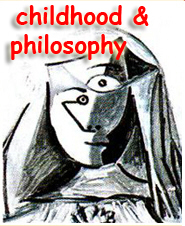phenomenological ontology and childhood education: reading merleau-ponty
Keywords:
Fenomenologia, Educação, Corpo, Espírito, Percepção, OntologiaAbstract
The present article explores Merleau-Ponty’s philosophy, in particular his work on the ontology of perception, in a search for new educational forms. In investigating the idea of infancy, the text looks for alternate possibilities for thinking an educational process more adequate to nature itself, to child’s nature, and to the nature of education. Departing from the traditional occidental dichotomy between body and spirit, matter and form, existence and essence, and drawing on contemporary phenomenological theory, the paper identifies various theoretical conceptions that may make for a clearer understanding of the relation between our presence in the world and our intellectual capacities. As Merleau-Ponty’s ontology shows, there is no separation between pedagogies that aim to foster autonomy and those that develop our capacity to understand others. Therefore, the questions raised here are both ethical and ontological. Children, by living at school, acquire more than objective knowledge of the world; they learn to live together as well, and how they come to understand the world will influence the way they understand their social, personal, and professional relationships. A theory that embraces both existence and essence more completely will help us to find more consistent support for our best educational practices.Downloads
Download data is not yet available.
Downloads
Published
2015-01-30
Issue
Section
articles



